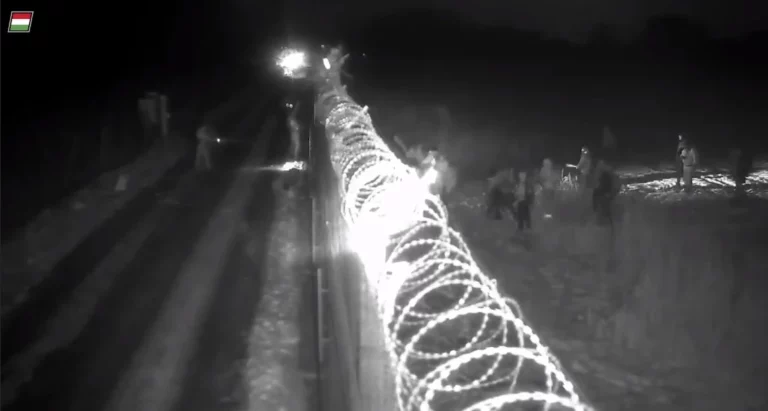Hungary border control
Dangerous Taliban extremist caught near the Hungarian border

Hungarian President inspects southern border with Serbian counterpart, former Czech PM

No more border control at the Croatian-Hungarian border from 2023 – here is why

Body found at Horgos shows increasing violence in border region

Hungary spent a huge amount to protect border

Hungary border fence to be fortified

More than 9,000 refugees arrive from Ukraine on Wednesday

Fidesz lawmaker: PACE backs illegal migration in new report

Orbán cabinet: Illegal entry attempts exceed 200,000 this year
The Hungarian authorities have apprehended 201,486 illegal migrants at the country's border since the start of the year, the prime...
Protection of external borders crucial to Schengen area security, says Minister Pintér

Thousands of illegal immigrants arrested at the Hungarian-Romanian border
Thanks to close cooperation between Hungarian and Romanian police, border partols detained over 4,000 illegal migrants on the border of...
Ten thousand border violators caught by civil guards in Hungary

PHOTOS: first Hungarian border hunters inaugurated!

Illegal migration – Special legal order extended until March 7

Orbán cabinet: 162,000 illegal entrants apprehended so far this year

Hungarian Police: Over 1,500 apply to serve in border patrol – VIDEO

Ukrainian refugees keep coming to Hungary

IT problems cause delays at Budapest Airport! -UPDATED





 ZH
ZH IT
IT DE
DE HR
HR NL
NL FR
FR JA
JA RO
RO RU
RU ES
ES TR
TR
